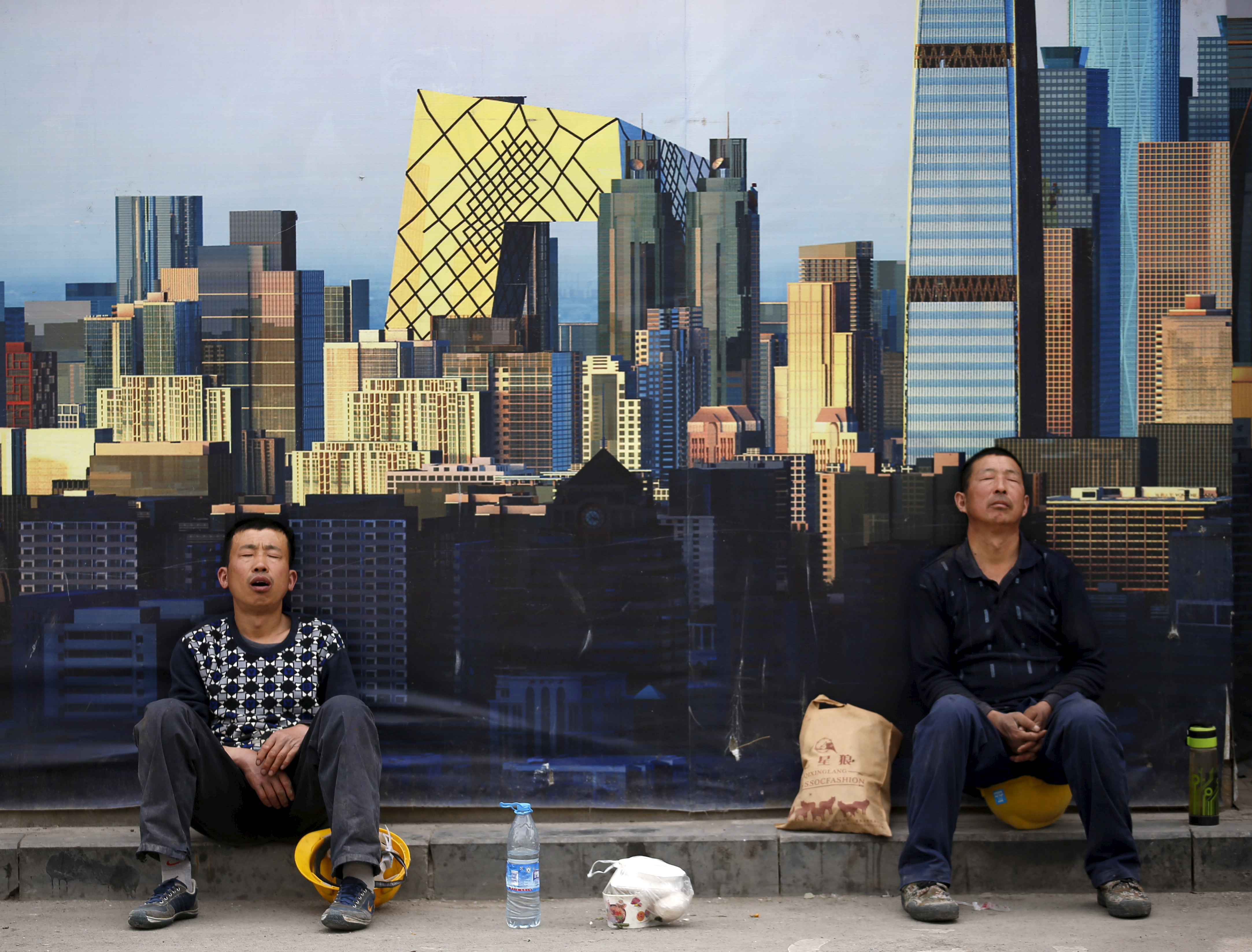
Construction workers sleep in front of a construction site wall during their lunch break on May 5, 2015 in Beijing, China. REUTERS/Kim Kyung-Hoon/File Photo
Aug 15 (Reuters) – China held off on releasing its youth unemployment data on Tuesday, saying it would need to review the mechanisms behind the closely watched gauge, which has reached record highs in one of several warning signs for the world’s second-largest economy.
The result, announced shortly after the release of weaker-than-expected factory and retail sales data, prompted a rare backlash on social media amid growing frustration over job prospects in the country.
It also marks the latest move by Chinese authorities to restrict access to key data and information, which has spooked foreign investors.
Fu Linghui, a spokesman for the National Bureau of Statistics (NBS), said the release of data would be suspended while officials considered collection methods “optimized”.
“In recent years, the number of university students has continued to expand,” Fu said. “A major responsibility of current students is studying. The community has differing views on whether to include students seeking employment before graduation in labor force surveys and statistics.”
This issue, as well as the age limit currently set at 16-24, “requires further research,” Fu said.
In recent months, China has blocked foreign users’ access to some corporate records and academic journals, and cracked down on due diligence firms operating in the country, a key source for foreign businesses about China.
“The declining availability of macro data could further weaken global investors’ confidence in China,” said Ding Lu, chief China economist at Nomura, adding that youth unemployment is expected to rise in July.
At the height of its COVID-19 outbreak late last year, China abruptly changed the way it categorizes deaths from the disease, prompting criticism both abroad and at home.
Tuesday’s move has also been met with skepticism at home as young Chinese face their tough summer job-hunting season.
The most recent NBS data on youth unemployment, released last month, showed the unemployment rate rose to 21.3% in June.
47% of graduates returned home within six months of graduating in 2022, up from 43% in 2018, the state-run China News Service reported last week, citing a private sector survey.
“It doesn’t exist if you close your eyes,” wrote one user on the microblogging site Weibo, where a hashtag related to NBS’s decision received more than 10 million views.
“There’s a saying ‘bury your head in the sand,'” another user wrote.
Larry Chen and Albee Zhang report; Editing: Muralikumar Anantharaman, Sam Holmes and Gerry Doyle
Our Standards: Thomson Reuters Trust Principles.

/cloudfront-us-east-2.images.arcpublishing.com/reuters/LKYTQP7FYJPPNPTVVCCLFY32FY.jpg)